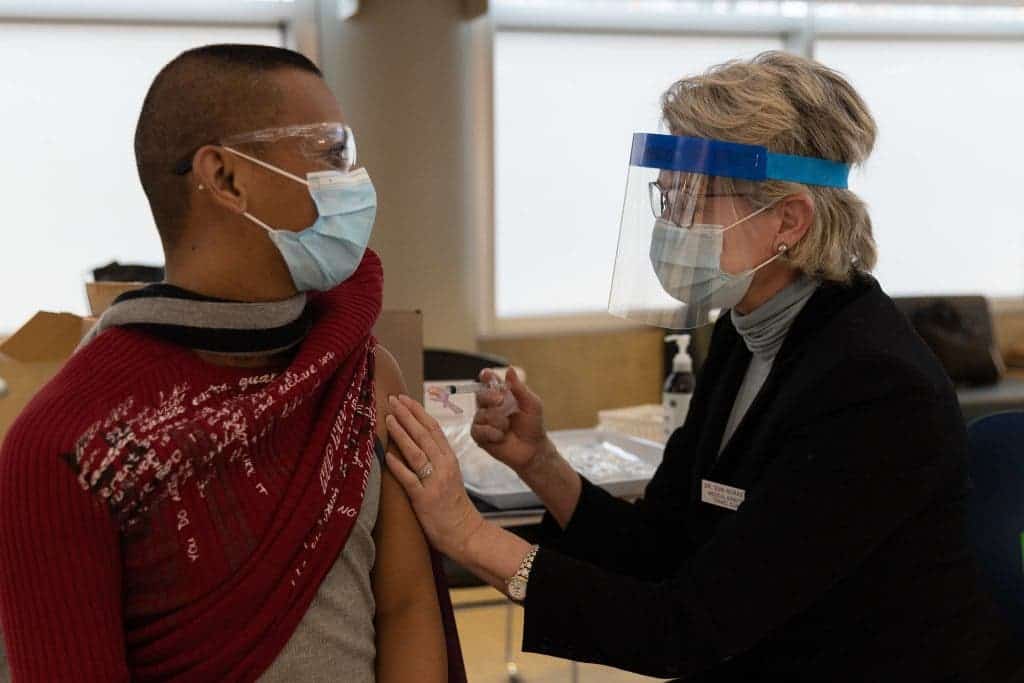After tackling COVID-19, Moderna now wants to use the same technology to develop a different vaccine. This week, the US pharmaceutical company administered the first doses of an mRNA-based influenza vaccine to a group of participants in an early-phase clinical trial. This marks the next stage of Moderna’s work on this type of vaccine technology.

Despite being regarded as the “future” of vaccines, mRNA vaccines were largely experimental before the Covid-19 pandemic. But the technology was right around the corner, and with the impetus brought by the necessity of new vaccines, not one but two mRNA vaccines were developed in under a year.
Moderna and Pfizer used this technology to develop their Covid-19 vaccines, which have proved to be very effective. Now, the pharmaceutical companies want to use this technology to tackle other infectious diseases, included the flu. mRNA vaccines have already been studied before for flu, Zika, rabies, and cytomegalovirus (CMV), and could, at least in theory, be tweaked much easier than other types of vaccines.
Those who get an mRNA shot are injected with snippets of genetic material from the target virus — not the virus itself. The cells in our bodies then use that genetic information to learn how to build bits of the virus that trigger an immune response inside our bodies. The mRNA itself then just fades away. It’s an elegant technology and a highly-anticipated technology that could be of great help in our fight against several diseases.
The flu is still out there
While not nearly as dangerous as the novel coronavirus, influenza (or the flu) is still out there. It took a big hit as the measures against the pandemic also worked against influenza, but we’d be foolish to think we’re past the flu.
It may seem benign, but the flu is a serious disease. The Center for Disease Control and Prevention (CDC) estimates that influenza affected between nine million and 45 million people every year since 2010. And in that period, it sent between 140,000 to 810,000 people to the hospital – killing between 12,000 and 61,000.
Flu shots are also less efficient than the ones we used in the pandemic. The flu shots currently available in the US are usually between 40% and 60% effective. They are made by growing the influenza virus in cells or chicken eggs, and then inactivating the virus so it’s no longer dangerous. Companies start making the shots six months ahead of time based on predictions about which strain of the flu will be circulating.
Pharmaceutical companies believe mRNA-based flu vaccines could be more effective than traditional flu vaccines. They can be developed in a laboratory using readily available materials, which means the process can be standardized and scaled up. This would make the development of a flu vaccine much faster than it is now.
Moderna is the second pharmaceutical company to start testing a mRNA flu shot in humans, after Sanofi and Translate Bio began with their trial this summer. Pfizer and BioNTech have also shown interest in mRNA flu shots for a few years. Moderna’s vaccine is designed to be effective against the four most common strains, A H1NI, H3N2, influenza B Yamagata and influenza B Victoria.
A big boy vaccine
If the vaccine (named mRNA-1010) is shown to be effective in later-strate trials, Modena wants to bundle it with three other mRNA-based vaccines to create a yearly one-stop shot. The combination would target influenza and other two commonly respiratory viruses, the respiratory syncytial virus (RSV), the human metapneumovirus (hMPV), as well as SARS-COV-2 — all in one shot.
“Respiratory combination vaccines are an important pillar of our overall mRNA vaccine strategy. We believe that the advantages of mRNA vaccines include the ability to combine different antigens to protect against multiple viruses and the ability to rapidly respond to the evolution of respiratory viruses, such as influenza, SARS-CoV-2 and RSV,” Moderna CEO Stéphane Bancel said in a statement.
Earlier this year, BioNTech started a Phase 2 trial of the world’s first mRNA vaccine against cancer, specifically for advanced melanoma. They hope the vaccine will help patients fight off advanced tumors and prevent recurrencies. Several mRNA vaccines targeting different types of cancers are also queued in the company’s product pipeline.









